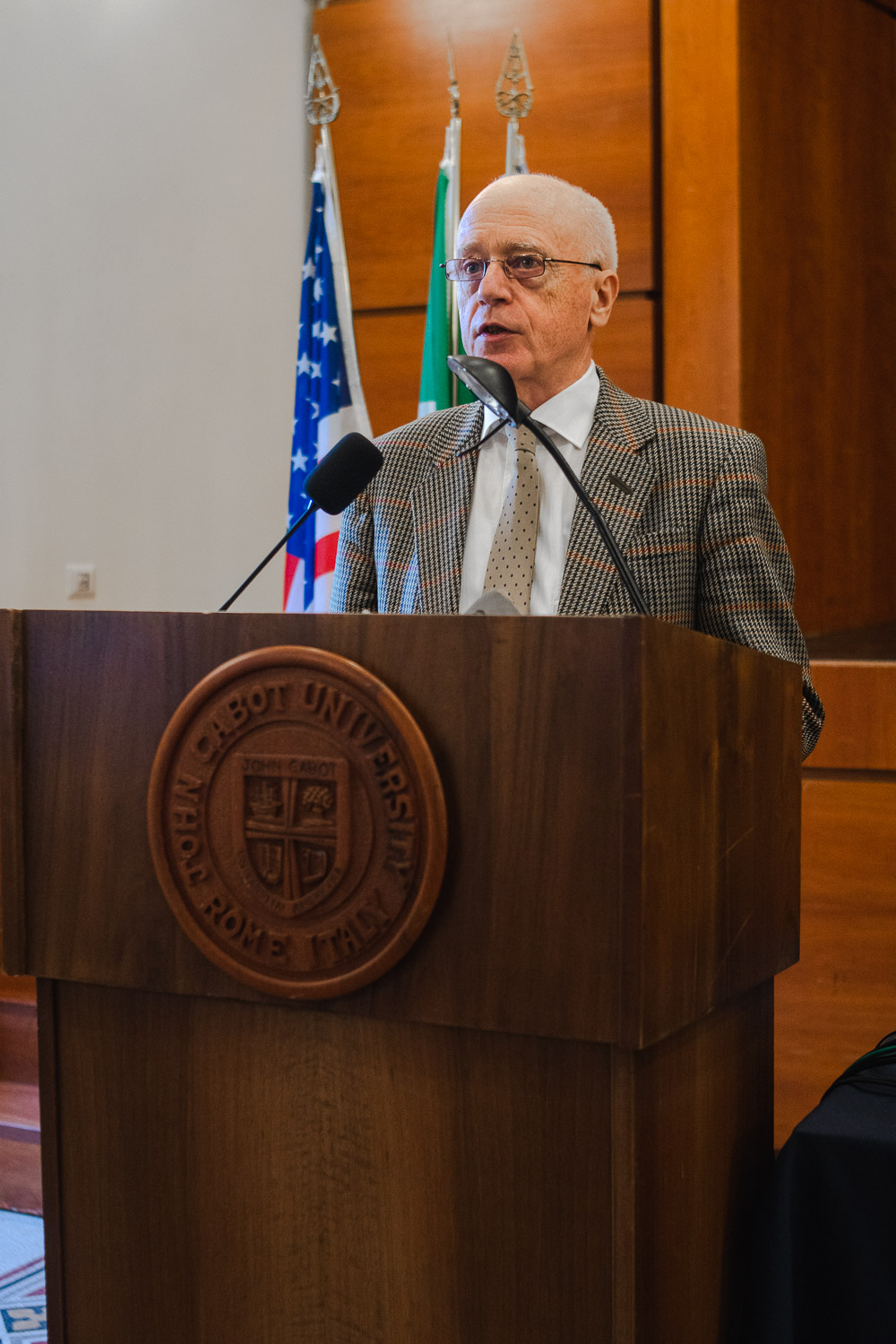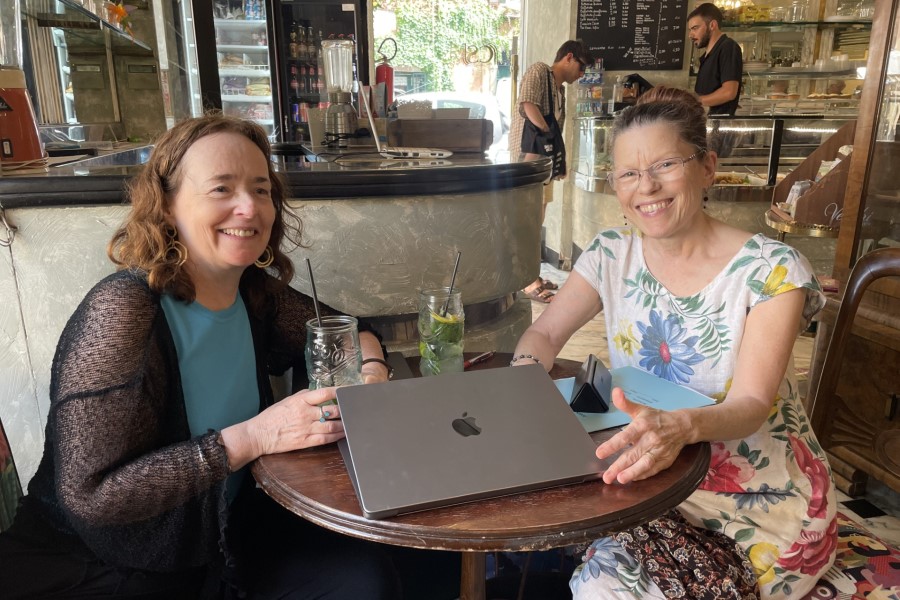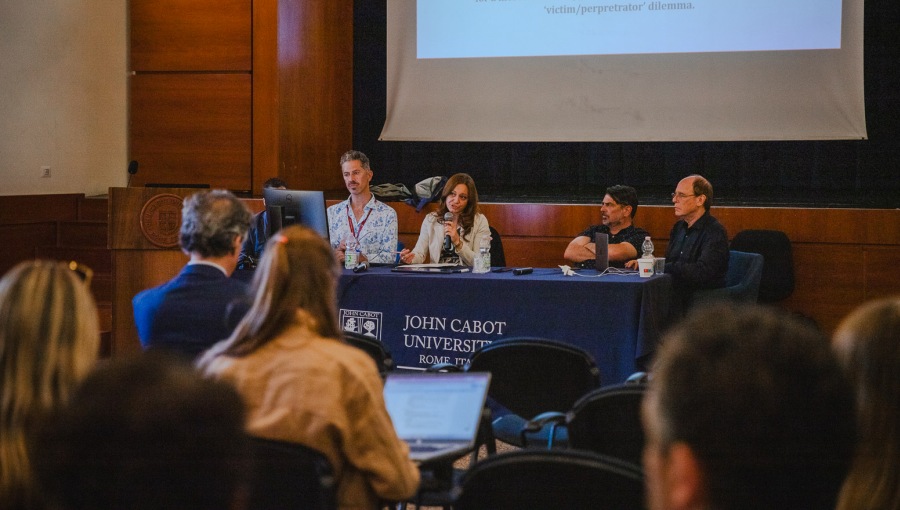The United Nations and International Democracy: A Talk by Hans Koechler
John Cabot University’s Department of Political Science and International Affairs welcomed Professor Hans Koechler for a lecture on The United Nations and International Democracy on February 14, 2020. Hans Koechler is Professor Emeritus of Philosophy at the University of Innsbruck, Austria, and Founder and President of the International Progress Organization, a Vienna-based think tank dealing with world affairs.
Professor Koechler’s presentation focused on the power dynamics in international law and relations, specifically as regards the structure of the United Nations and the membership, powers, and role of the Security Council in relation to “international democracy.” Professor Koechler traced the history of the UN, which was founded in 1945 in the aftermath of World War II, to “save the succeeding generations from the scorch of war,” as stated in the preamble of the UN Charter.
The Principle of Equality
In the preamble, the UN Charter affirms the principle of equality among all “nations large and small,” whether they are large and powerful, like the United States, or as small as the Principality of Monaco. In the General Assembly, each State enjoys one vote in line with the principle of the sovereign equality of all member states.
But does the functioning of the UN actually correspond to this principle of equality? According to Professor Koechler, the UN does not implement the democratic principle of equality because the UN Charter is drafted in such a way that the Security Council, being the only body with enforcement power, is the only one that can make binding decisions. Yet each of the five permanent members has a right to exercise a veto, which means essentially that they can block any draft resolution before the Council, thereby frustrating the Council’s efforts to maintain or restore international peace and security. On the one hand, said Professor Koechler, every State enjoys voting equality in the UN General Assembly, where it matters little, since General Assembly resolutions are non-binding, but they do not enjoy voting equality in the Security Council where it does matter, because Security Council decisions taken under Chapter VII of the Charter of the United Nations are legally binding.
The Power of the “P5”
The P5 are the five states that the UN Charter grants a permanent seat on the Security Council, namely, the United States, United Kingdom, Russia, China, and France. Professor Koechler added, “Nothing can be changed in the Charter, not even a comma, unless the 5 permanent members agree.” This means that reform of the Charter cannot be made without the assent of each of the five Security Council permanent members, but it is these same powers that remain jealous to guard their privileged position in the UN structure. Reforming the UN Charter requires approval of two-thirds of the UN General Assembly and the approval of all P-5 members. In the 75 years since the founding of the UN, this problem has not been overcome. This “double-standard,” written into the Charter itself, along with the Council’s veto power, remains a founding principle of the Organization. Professor Koechler said that all of the reform debates that have taken place within the UN concerning what he defines “a democratic double-standard” have led nowhere so far.
Professor Koechler concluded by quoting former US secretary of State John Foster Dulles: “The Security Council is not a body that merely enforces agreed law. It is a law unto itself.”






